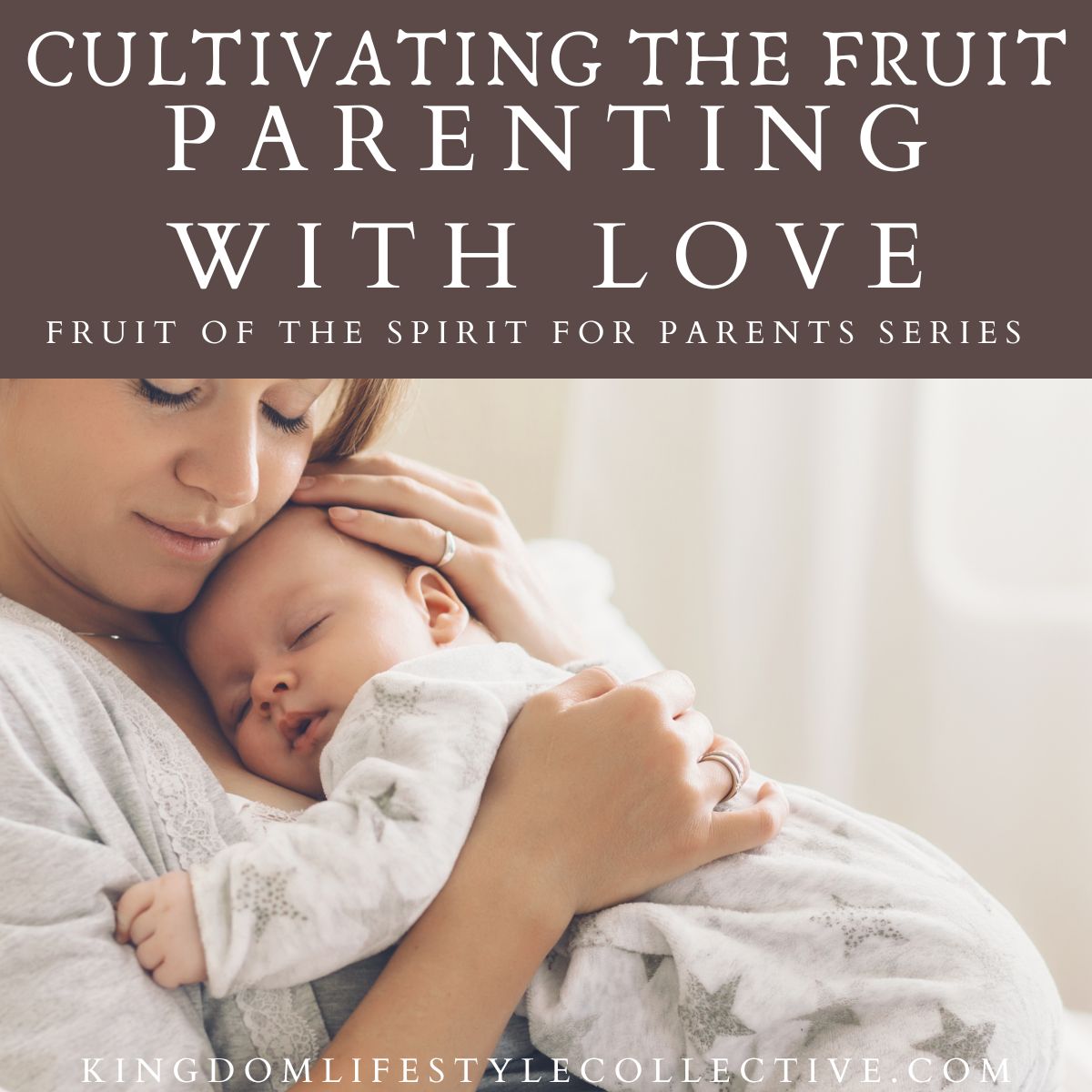In this post, we explore how parents can cultivate the fruit of love in their daily lives with their children. Love, the first fruit of the Spirit, is more than just affection—it’s an intentional choice to respond with grace, kindness, and care, even in difficult moments. By modeling Christ-like love, we show our children what it means to love others well. As Galatians 5:22-23 (NIV) reminds us, “But the fruit of the Spirit is love, joy, peace, forbearance, kindness, goodness, faithfulness, gentleness and self-control.” Cultivating these qualities starts with love, the foundation of godly parenting.

As parents, we are given the beautiful responsibility to reflect God’s love to our children. The fruit of the Spirit begins with love, and it’s no surprise—love is the foundation of all we do as parents. But how do we live out this love day by day, especially when the pressures of life or parenting challenges overwhelm us?

Love as a Choice
Love isn’t just a feeling; it’s an action and a decision. There will be days when our patience is tested, when tempers flare, and when exhaustion makes it hard to respond gently. In those moments, love becomes a conscious choice. We choose to respond with grace rather than frustration. To serve even when it’s inconvenient. We choose to see the needs behind the behaviors, meeting our children with compassion rather than judgment.
When we make the decision to love, even in hard moments, we model Christ’s sacrificial love for our children. They learn that love is more than affection; it’s a commitment to care for others, even when it’s not easy.
Love in Action
We show our children love through the little things: listening attentively to their stories, hugging them when they need comfort, or showing up consistently in their lives. But love also means setting boundaries, teaching them discipline, and holding them accountable. True love doesn’t always say “yes”; it knows when to say “no” for their good.
As parents, we reflect God’s love when we nurture, guide, and protect. Every time we correct behavior in love, we’re not just enforcing rules; we’re teaching our children how to live with integrity, care for others, and respect authority.
Teaching Love through Example
Our children learn what love looks like by watching us. They observe how we treat others, how we speak, and how we handle difficult situations. Do we show love and kindness in our marriages, friendships, and interactions with strangers? The love we model in everyday life teaches our children far more than words ever could.
By prioritizing time together as a family, practicing forgiveness, and showing affection, we give our children a clear picture of love in action. We can also teach them to love others—encouraging them to share, show kindness, and speak with respect.
Reflecting God’s Love
Ultimately, parenting with love means pointing our children toward the greatest love of all—God’s love. Our goal as parents is not only to love our children well but to help them understand that they are deeply loved by their Creator.
When we teach them about God’s love, they begin to see that the love we show as parents is just a small reflection of His perfect, unconditional love. They can then grow to love others from a heart that is filled by God’s Spirit.
Conclusion
Love is the first and most essential fruit of the Spirit. As we cultivate love in our homes, we’re building a strong foundation for our children to thrive. When we choose love in the daily moments of parenting, we create an atmosphere of warmth, security, and grace that will stay with them for a lifetime.













